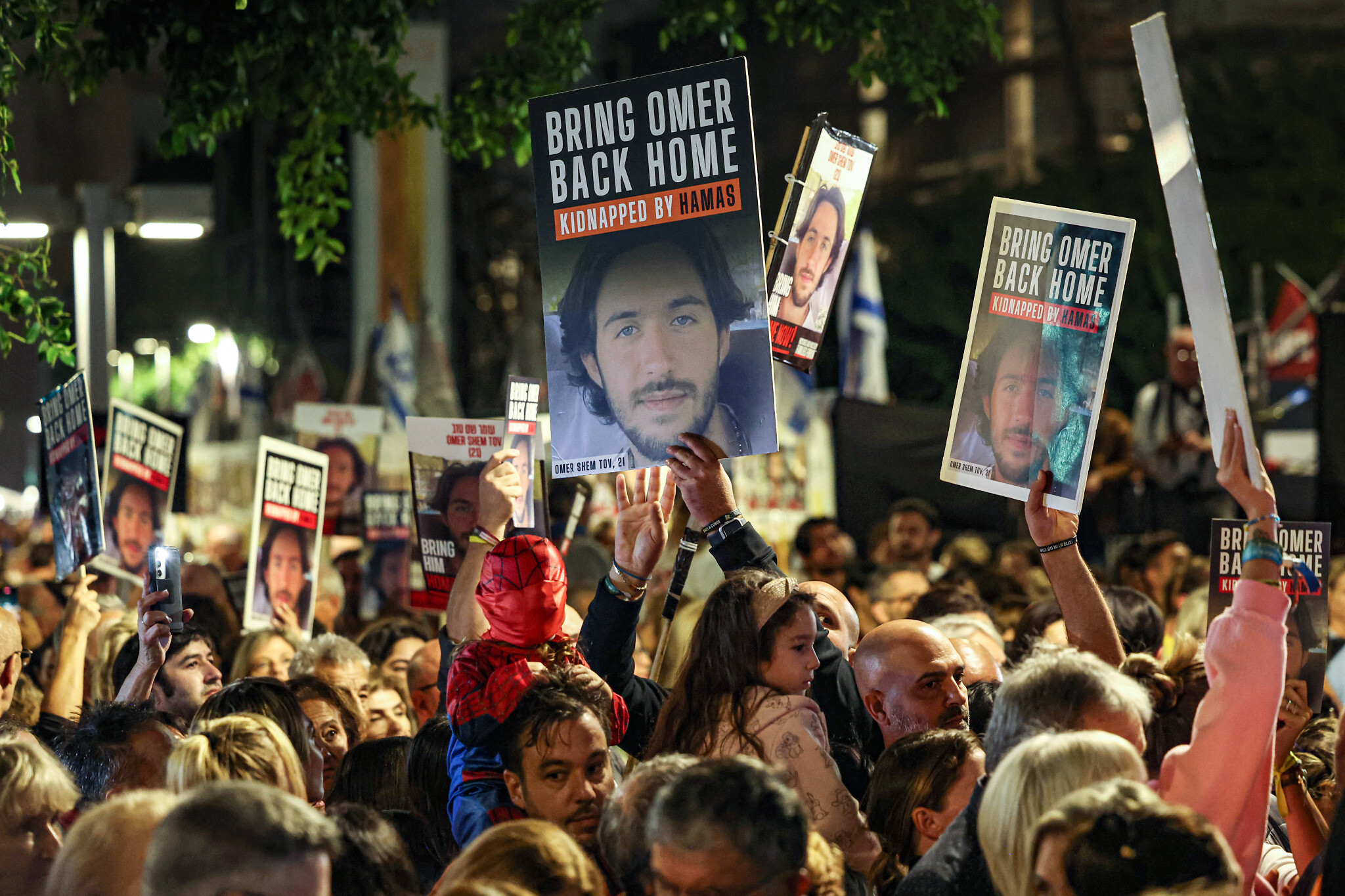



The annual commemorations of Holocaust Remembrance Day, Memorial Day, and Independence Day are taking a unique and especially somber feel in 2024, some seven months after Hamas’s October 7 massacre and while the war is ongoing in Gaza, as are tensions on the northern border.
In one state-sponsored event for Holocaust Martyrs’ and Heroes’ Remembrance Day on Monday, members of the foreign press have been invited to hear testimonies from former hostages who have returned from captivity in Gaza since October 7, as well as family members of those still held captive.
The deadliest day for Jews since the Holocaust, the October 7 onslaught saw some 3,000 Hamas-led terrorists burst across the border from Gaza by land, air and sea, killing around 1,200 people and seizing 252 hostages, mostly civilians, under the cover of a deluge of thousands of rockets fired at Israeli towns and cities. Entire families were executed in their homes, and over 360 people were slaughtered at an outdoor festival, many during acts of brutality by the terrorists.
The event, to be held at the Government Press Office in Jerusalem, will also include a panel discussion and a in-depth briefing about sexual abuse perpetrated by Hamas terrorists on October 7.
Among the scheduled participants are Meirav Tal, who was taken hostage from Kibbutz Nir Oz and released as part of a temporary truce in late November, Moshe Or, whose brother Avinatan Or was kidnapped from the Supernova music festival and is still held in Gaza, Ayelet Levy, whose 19-year-old daughter Naama Levy was taken from the IDF’s Nahal Oz base and is still held hostage, and Malki Shem Tov, whose son Omer Shem Tov was also kidnapped from the outdoor rave near Kibbutz Re’im.
The briefing on sex crimes during the October 7 attacks will be led by Orit Sulitzeanu, executive director of The Association of Rape Crisis Centers in Israel, who has been vocal in raising awareness for the violence against women specifically that took place during and after the massacre.
A United Nations report presented in March, based in large part on witness testimony, video evidence, testimony from terrorists, and photographs of victims’ bodies gathered by Israeli investigators, found “reasonable grounds” to believe that Hamas committed rape and sexual abuse during its murderous rampage on October 7. It also presented an even higher standard of evidence to indicate that hostages kidnapped by Hamas that day were — and still are — subject to rape in captivity.
It is believed that 128 hostages abducted by Hamas on October 7 remain in Gaza — not all of them alive — after 105 civilians were released from Hamas captivity during a weeklong truce in late November, and four hostages were released prior to that. Three hostages have been rescued by troops alive, and the bodies of 12 hostages have also been recovered, including three mistakenly killed by Israel’s military.
The IDF has confirmed the deaths of 35 of those still held by Hamas, citing new intelligence and findings obtained by troops operating in Gaza. One more person is listed as missing since October 7, and their fate is still unknown.
Hamas has also been holding the bodies of fallen IDF soldiers Oron Shaul and Hadar Goldin since 2014, as well as two Israeli civilians, Avera Mengistu and Hisham al-Sayed, who are both thought to be alive after entering the Strip of their own accord in 2014 and 2015 respectively.

